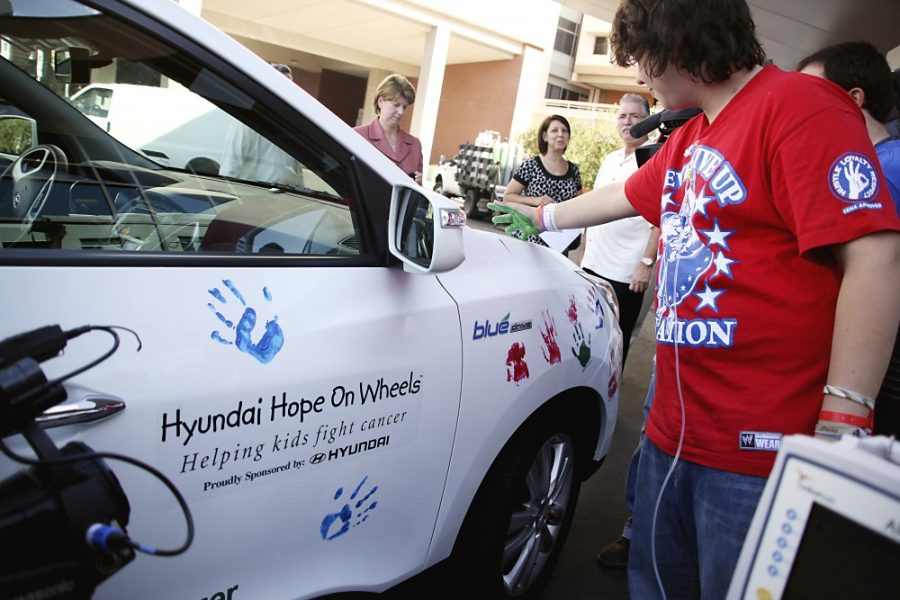The University of Arizona Steele Children’s Research Center made an impression yesterday as cancer patients from the facility got to leave their handprint on a Hyundai Fuel Cell Electric Vehicle.
The event recognized the research center winning a $100,000 grant from Hyundai Hope on Wheels program. Started by the motor company Hyundai in 1998, the organization aims to help fight childhood cancer by donating money to research centers and programs all over the U.S. September is National Childhood Cancer Awareness Month and as a result, Hyundai Hope on Wheels will be awarding similar $100,000 grants to 71 recipients across the country for a total of $7.1 million.
“The hard work to help facilitate a less toxic treatment of cancer is truly groundbreaking and worth supporting,” said Lori Stratton, director of development for the Children’s Research Center during the presentation.
A check of $100,000 was awarded to Dr. Emmanuel Katsanis, head of the Division of Pediatric Hematology and Oncology, by Jim Click, owner of Jim Click Automotive Team along with a $50,000 check the automotive group donated to the research center this past May.
“There has been significant progress in (cancer research) the last for the last 30 and 40 years but unfortunately there are still many kids we can not cure,” Katsanis said.
The money that was received will be used to help fund further research at the facility, particularly immunotherapy, which is a combination of cell therapy and a vaccine developed at the UA. It is a less toxic from of therapy for cancer that is often used to help keep a patient in remission.
“It doesn’t take the place of chemotherapy or radiation but what it does is teaches the body to recognize its own type of cancer and fight it when it comes back,” Stratton said.
This is the second year that Hyundai Hope on Wheels allowed institutions to apply for the grant. All of the grants awarded this year will go to help fund new projects on cancer research.









